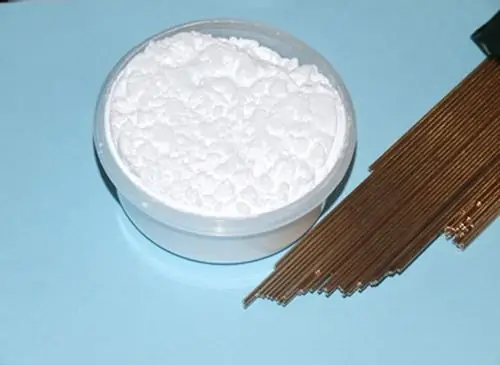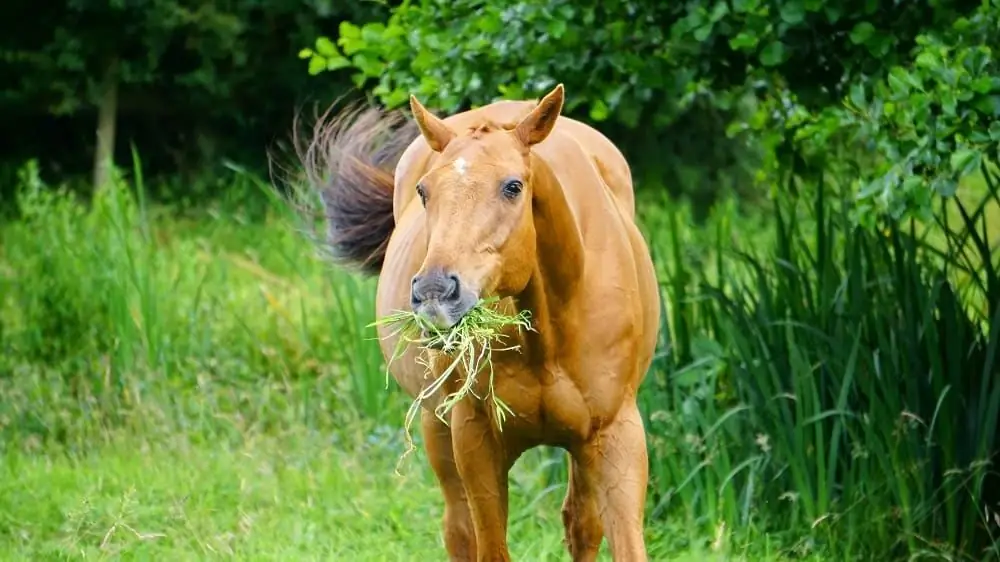2026 Author: Howard Calhoun | calhoun@techconfronts.com. Last modified: 2025-06-01 07:12:56
Weather conditions always affect animal feed. The technology is outdated. For these and other reasons, grain harvesting technologies are disrupted, which affects the quality of the resulting feed, which has a low nutrient content and a high level of harmful microorganisms and bacteria.
Exploring ways to disinfect grain, scientists have developed a method of extrusion. This method has found wide practical application. Thus, as a result of the barothermal effect, the toxins in the grain are inactivated and the grain is sterilized.
Technology
Thanks to modern technologies, it has become possible to widely use extruded feed, which can significantly reduce financial costs and increase profits. Feed is the main source of carbohydrates for animals. Most of all, cereals from wheat, barley, oats, corn, etc. are used. The use of legumes is very rare. These include lentils, peas, soybeans, etc.
Cereal animalsare obtained in the form of porridges, for the preparation of which fine or coarse flour is taken. If the grain has high humidity, then mold, aerobic bacteria quickly grow in it. Such raw materials become very dangerous for animals. In contrast, extruded food is practically safe. Indeed, even in freshly harvested grain, where the humidity is still low, there is a significant number of microorganisms. These toxins tend to multiply rapidly. It is also interesting that, even if the grain was dried, the humidity in it still reaches the level of 14%.
Technologically, this process goes like this: the grain is crushed and moistened in a screw mixer. Moisture is supplied based on one ton - 275-400 liters. After wetting, the grain enters the extruder, where it undergoes compaction, compression and high temperature treatment for up to 10 seconds at t=150-190 °C. After such treatment, 1 gram of wheat, for example, contains 10,000 times fewer microorganisms than before extrusion, and the mold fungi contained before processing the grain die.

Features of extrusion
After 1.5 months of storage, the presence of microorganisms that contain extruded feed remains at the same level, while it tends to grow in unprocessed feed.
Moist heat treatment of grain by extrusion significantly increases its nutritional properties and digestibility for the animal's body. Treatment with high temperatures causes dextrinization of starch - this is the process of formationeasily soluble carbohydrates. The simultaneous presence of moisture and elevated temperature contributes to the gelatinization of grain raw materials.
Maximum dextrins are formed when crushed wheat is processed at a temperature of 180 ° C using a pressure of 2.5-3 MPa and moisture at the rate of 300 liters per ton. The amount of starch (gelatinized) reaches 27% with this method.
An important feature that extruded feeds have is hydrophilicity. The intensity of swelling is already visible in the first 10 minutes. Such indicators are important for the preparation of feed mixtures. If you distribute the liquid mixture on the grid, it will fall to the ground, and such losses affect the economic side of farming.

Why choose extruded food? Pros and cons
Today, the method of processing grain by extrusion is one of the best technological solutions.
During heat treatment, the feed has improved palatability due to the formation of various aromatic substances. It significantly increases the activity of enzymes necessary for digestion. The only thing is that the raw material during extrusion should be free from earth, straw, various pebbles and other mechanical debris. Interestingly, even the processing of stale wet grain with a pronounced ammonia smell turns the grain mixture into an excellent feed. And after extruding the "dead waste" (buckwheat shells), they get feed for pigs and sheep.
Food digestibility
If the animal consumes regular, notextruded feed, the pros and cons become apparent. It absorbs only half of it. This is due to the fact that most of the energy is spent on the digestion of the shell. Therefore, in order to maintain the vital activity of animals and obtain high productivity, very high costs have to be included in the estimate. This is a minus, and the only plus is its naturalness, but if it lies down a bit or spoils, it can provoke a problem.
The extrusion process does the first half of the work of the stomach, and the energy needed for digestion is saved. Everything that extruded feed gives goes completely to the needs of the animal's body, and productivity has cheaper indicators as a result. Such extruded animal feed is indispensable for growing young animals. Practicing veterinarians and livestock specialists know that 90% of young animals die due to various diseases of the stomach, intestines, infections that are introduced through the digestive system. Young animals are the least protected in this area.

Sterility
Extruded feed is practically sterile even after a long period of storage in conventional warehouses. When feeding with an extrudant, the death of young animals from intestinal diseases is almost halved. Even then, when switching to roughage, an animal that has eaten extruded feed for cattle (cattle) has a he althy stomach, not exhausted by intestinal disorders, and is significantly ahead of its peers in growth.
In the wetIn the feed, the decomposition of vitamins in a natural way occurs intensively, and in the extrudant with a moisture content of 7-9%, vitamins are preserved.
Additional benefits
There is another point that points to the advantages of extruded feed. Practice shows that animals, especially piglets, throw up to 8% of feed on the litter when feeding. If extruded pig feed is used, this does not happen.
It is also important to know that the extrudant has absorption properties, so it is a prophylactic agent for diseases of the stomach, intestines.
Dairy farming
There are a number of cases where extruded products are the only reasonable way to achieve payback and profitability. This is especially true for dairy farming. To obtain highly efficient production in such an industry, very intensive feeding of cows is necessary. They must receive protected protein and protected fat, which are not broken down in the rumen, passing through it, but are digested in the small intestine. Thanks to this method, the main part of the released amino acids will be absorbed into the blood and will be used in the synthesis of milk proteins, and free fatty acids will provide a sufficient level of metabolic energy. Such a unique product is obtained by extruding soybean in combination with sunflower meal.

Feeding dogs and cats
On the question of whether to use extruded dog food, there is disagreement among both pet owners andamong veterinarians. Opponents argue that when a dog is fed ready-made food, the animal's need for high-quality nutrients, vitamins, and fatty acids increases. If they are not enough, then the pet will face serious he alth problems. If there are a lot of positive arguments in favor of extruded grain animal feeds, then there are more negative ones in the direction of prepared animal feeds.
Meat waste, which is part of extruded feed, may contain high amounts of hormones that affect the development of tumors. These are synthetic hormones added to food to stimulate growth, and meat meal, which is mostly made from waste glands, the embryonic tissues of pregnant cows. These hormones remain active for a long time. High hormone levels are considered particularly dangerous for cats.

Diseases
Sick animals that are considered defective go to waste and possibly to the production of dog and cat food. Today it is no secret that young animals suffer from problems that used to be characteristic only of older individuals. Young veterinarians without past experience cannot, in principle, leave 100% true extruded food reviews, as they do not have the ability to compare animal he alth over time. A few decades ago, many diseases in young pets were out of the question.
Chemistry
The deterioration in the he alth of pets has a stronginfluence of various chemical additives. If the label says it has corn syrup in it, know that it's an ingredient that provides moisture and elasticity. In addition, this is a very sweet element that is extracted from corn starch and causes changes in the pancreas and adrenal glands, which can lead to diabetes. Corn syrup is not digestible by animals. It also dilutes the rest of the nutrients with calories that do not contain minerals, vitamins, proteins and fats.
Corn starch syrup stimulates excess insulin production, increases stomach acidity, inhibits the growth of beneficial bacteria in the gastrointestinal tract. This leads to dysbacteriosis, prevents the normal absorption of calcium, proteins and minerals present in food.

We should not forget about the dyes added to the feed to improve the color and attract buyers. Although the more natural the food, the closer it is to a gray-brown color. Our pets are indifferent to the color of the food, they simply do not distinguish it, and the owners almost always look at the color. Therefore, manufacturers add dyes. Synthetic flavors and flavors are also added to harmful dyes. They are not only for animals, they and people should not be eaten!
This is only a small part of what can be said on this issue. In general, it should be understood that the process of contamination with food chemistry begins with pesticides, herbicides, etc., which are used for industrial cultivation of crops. Today thereadded transgenes. Further, the process continues through the use of antibiotics, tranquilizers, which are used by poultry farms, farms, etc. This is followed by processing for transportation and storage. And so on until the production of feed…
When can pets eat ready-made food?
It is possible to use such feeds when there is an exceptional need, such as a trip. But not on a permanent basis! If, for any reason, the owner prefers to feed his pet with extruded food, then he needs to approach the choice very carefully!
The food looks similar at first glance, but it's not! You need to carefully study the list of ingredients. If the dog drinks little, she should not be given dry food, then only canned food. Any inconsistencies in nutrition are reflected in the feces. It is not necessary to supplement a balanced feed with vitamins and microelements separately, since the feed itself provides a complete set necessary for the animal's body.

Vitamin overdose
Adult pets should never be fed small pet food frequently as it contains high amounts of minerals etc. For this reason, feeding adult pets with extruded puppy food can lead to obesity. You can not give food intended for pets of one weight category to representatives of another. An overdose of any vitamin can lead to serious he alth problems!
Ready foodcan be used as a mineral supplement in the normal diet of an animal with meat and cereals. It can be used as a fortified top dressing with a predominant supply of grain products and waste from the meat industry. If prepared foods are always used, there is no need for supplements.
It is important to always pay attention to the content of vitamins A, D3. Their excess leads to very negative consequences.
Recommended:
Indicators without delay and redrawing: types, principle of operation, pros and cons of application, expert advice

There is a wide variety of different tools in trading: graphical constructions, technical indicators, automated programs, trading signals and much more. To successfully apply them in trading, you need to understand how they work. Indicators without delay and redrawing are especially popular with traders
Centralized management: system, structure and functions. Principles of the management model, pros and cons of the system

Which management model is better - centralized or decentralized? If someone in response points to one of them, he is poorly versed in management. Because there are no bad and good models in management. It all depends on the context and its competent analysis, which allows you to choose the best way to manage the company here and now. Centralized management is a great example of this
Flux for welding: purpose, types of welding, flux composition, rules of use, GOST requirements, pros and cons of application

The quality of the weld is determined not only by the ability of the master to organize the arc correctly, but also by the special protection of the working area from external influences. The main enemy on the way to creating a strong and durable metal connection is the natural air environment. The weld is isolated from oxygen by a flux for welding, but this is not only its task
What is better to open: LLC or IP? Pros and cons of sole proprietorship and LLC. The difference between sole proprietorship and LLC

What is better to open: LLC or IP? Having decided to throw off the shackles of office slavery and no longer work "for your uncle", developing your own business, you should know that it must be legal from a legal point of view
How to feed horses: types of feed, nutritional rules and diet

To figure out what to feed horses, it would not hurt to find out how these animals eat in the wild. In ancient times, herds of horses simply grazed in the meadows. This was enough to provide their body with all the necessary nutrients

